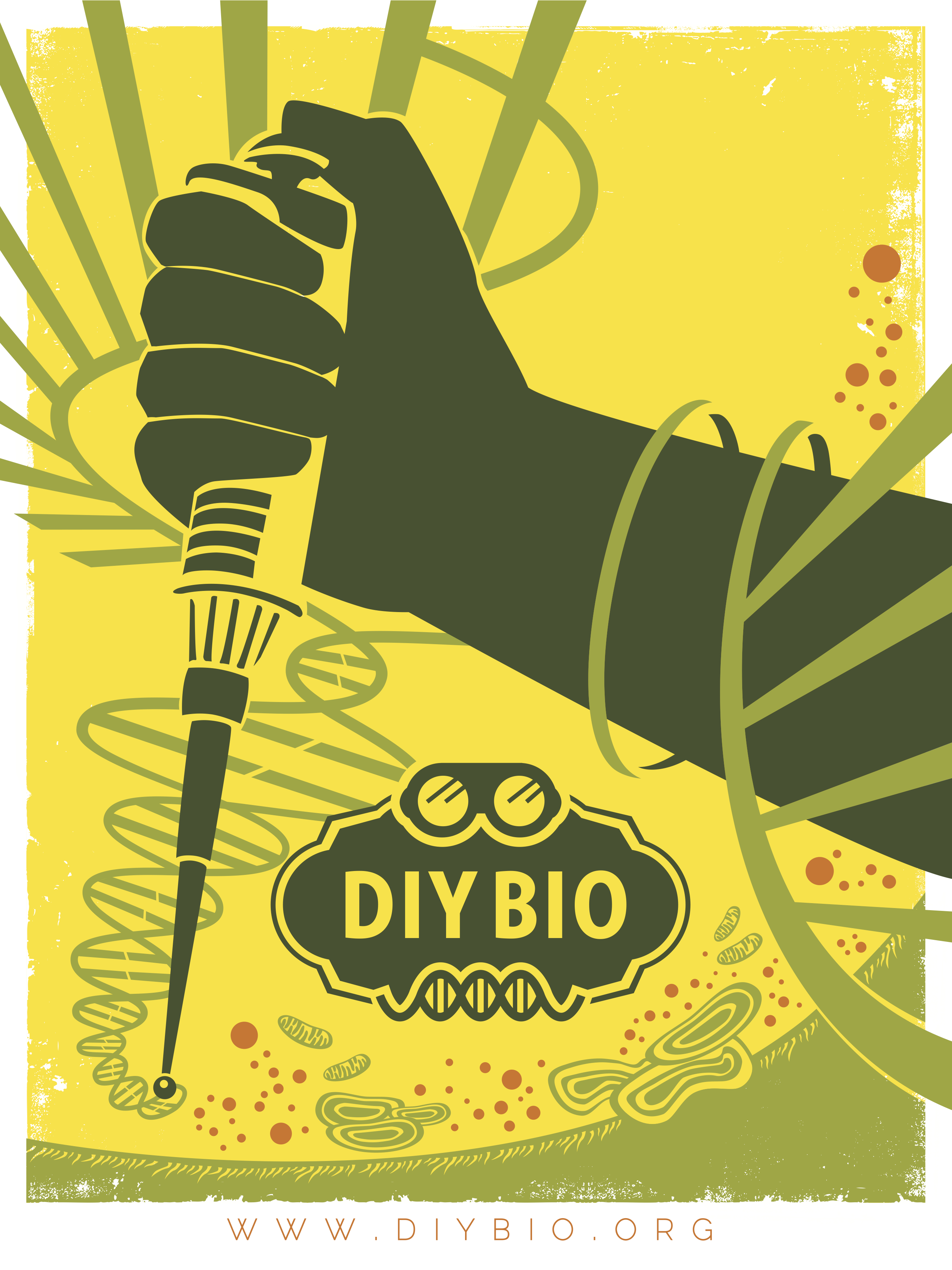 I have read many stories about doing science away from the bench, both in the news and views section of scientific journals and on popular science blogs. PLOS Blogs even has a regular feature called Citizen Sci, which highlights how everyday people can take part in science outside the traditional laboratory or field setting. Thus, I was curious to read Biopunk: DIY Scientists Hack the Software of Life by Marcus Wohlsen.
I have read many stories about doing science away from the bench, both in the news and views section of scientific journals and on popular science blogs. PLOS Blogs even has a regular feature called Citizen Sci, which highlights how everyday people can take part in science outside the traditional laboratory or field setting. Thus, I was curious to read Biopunk: DIY Scientists Hack the Software of Life by Marcus Wohlsen.Wohlsen did a great job of discussing what DIY science is and why it is important. Historically, the roots of DIY science can be found in people like Edward Jenner, who inoculated his gardener's son with cowpox to test its efficacy against smallpox and Newton, who poked himself in the eye to better understand optics. Today, the DIY science movement serves to democratize science, allowing people outside of research institutes and universities to take on projects based on their own interests rather than based on the decisions of funding bodies. As a result, the movement could transform science, taking some power away from the big companies that set steep prices for lab equipment.
One major goal of the DIY science movement is to MacGyer common lab equipment to make it accessible (read: cheap) to everyone. Some of these hacks could serve researchers that aren't lucky enough be in a well-funded lab. Take the example of the PCR machine, the biology lab workhorse that helps researchers copy and manipulate DNA (prices start at $3000). A Google search for "DIY PCR machines" reveals many designs that start at $100, making PCR available to more people. Thus, many of the projects in DIY biology can benefit the developing world because they are design to cut costs and to make it possible to run experiments in virtually any environment.
 One element that seems to be common in every story about DIY biology is the comparison with the computer hacking movement. People turning spare rooms and garages into laboratories for their side projects does have similarities with the origin stories of companies like HP and Apple. The resemblance goes further: DNA is the code of life and, like computer hackers, people in the DIY bio movement believe that this code should be open source and not limited only to the scientists who have grant money or research labs. Labeling DIY scientists as "hackers" can create a negative impression; when the general public hears of a hacker doing genetic modification in their garage, there can be a tendency to overreact. The worst case was seen with Steve Kurtz, an artist that used the tools of DIY biology as part of his palette. In 2004, Kurtz was arrested on suspicion of bio-terrorism after his wife died of an unrelated heart attack. (There is also an interesting documentary about the case called Strange Culture.)
One element that seems to be common in every story about DIY biology is the comparison with the computer hacking movement. People turning spare rooms and garages into laboratories for their side projects does have similarities with the origin stories of companies like HP and Apple. The resemblance goes further: DNA is the code of life and, like computer hackers, people in the DIY bio movement believe that this code should be open source and not limited only to the scientists who have grant money or research labs. Labeling DIY scientists as "hackers" can create a negative impression; when the general public hears of a hacker doing genetic modification in their garage, there can be a tendency to overreact. The worst case was seen with Steve Kurtz, an artist that used the tools of DIY biology as part of his palette. In 2004, Kurtz was arrested on suspicion of bio-terrorism after his wife died of an unrelated heart attack. (There is also an interesting documentary about the case called Strange Culture.)Wohlsen pushes the idea that DIY scientists are punks, describing their leather jackets, tattoos, and Mohawks, to the point that borders on fetishization of his interview subjects. To some extent, this is SOP in science writing (and celebrity interviews); it serves as a device to quickly characterize the subject. Unfortunately, it detracts from the serious science that is starting to happen. I look forward to seeing what DIY bio leads to in the future, especially because CRISPR technology has made genome editing simpler and cheaper than ever and it is readily available to DIY biologists.
Another great aspect of DIY science is that it can give the people who left the lab after their PhD or postdoc a way to return to the excitement of scientific discovery. Depending on where you live, you may find a hacker space near you. Here in Boston, you can visit the BossLab (Boston Open Source Science lab), but most major cities seem to have similar spaces available. Some more great resources can be found at DIYbio.org. Of course, I think I will keep my home experiments confined to baking.